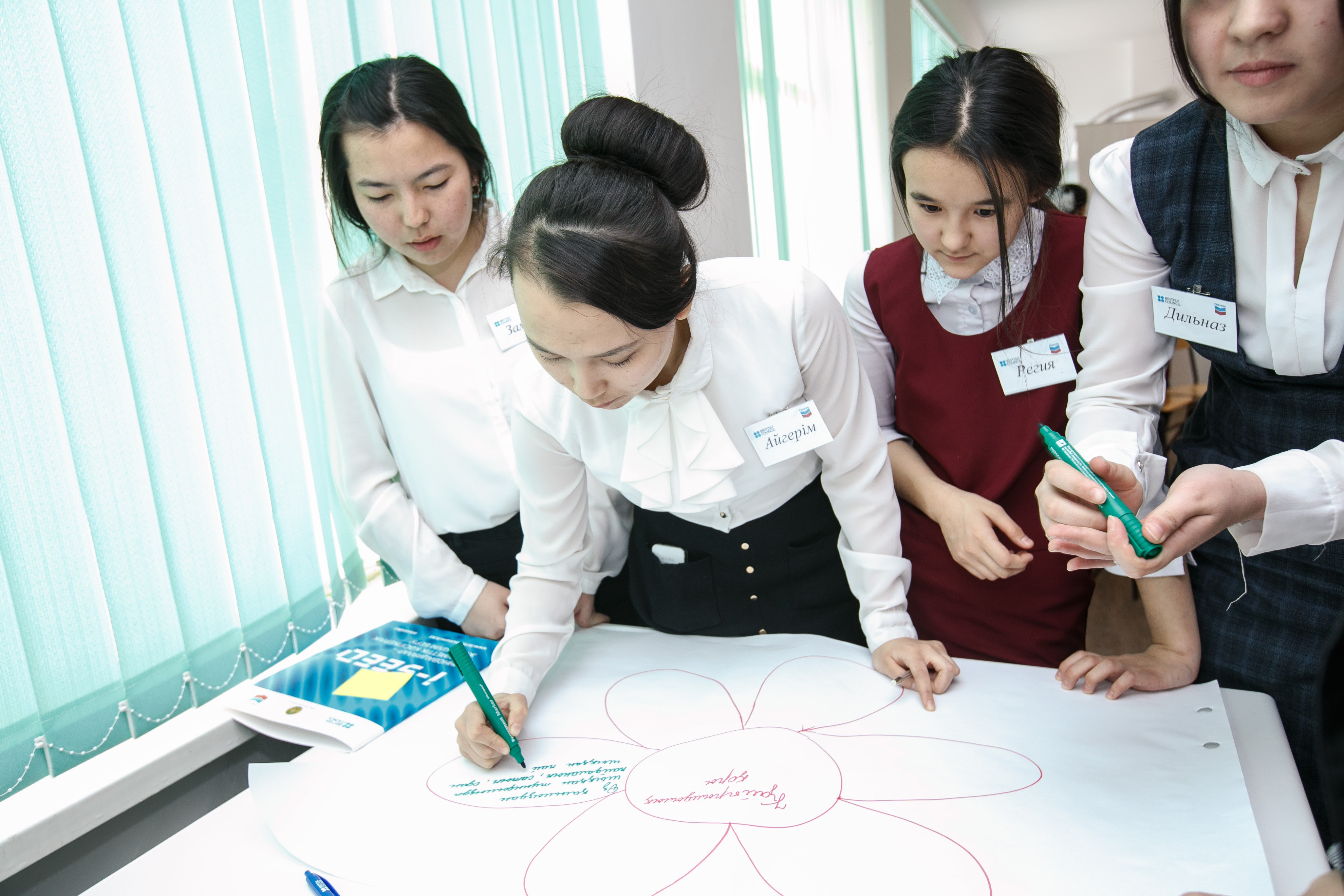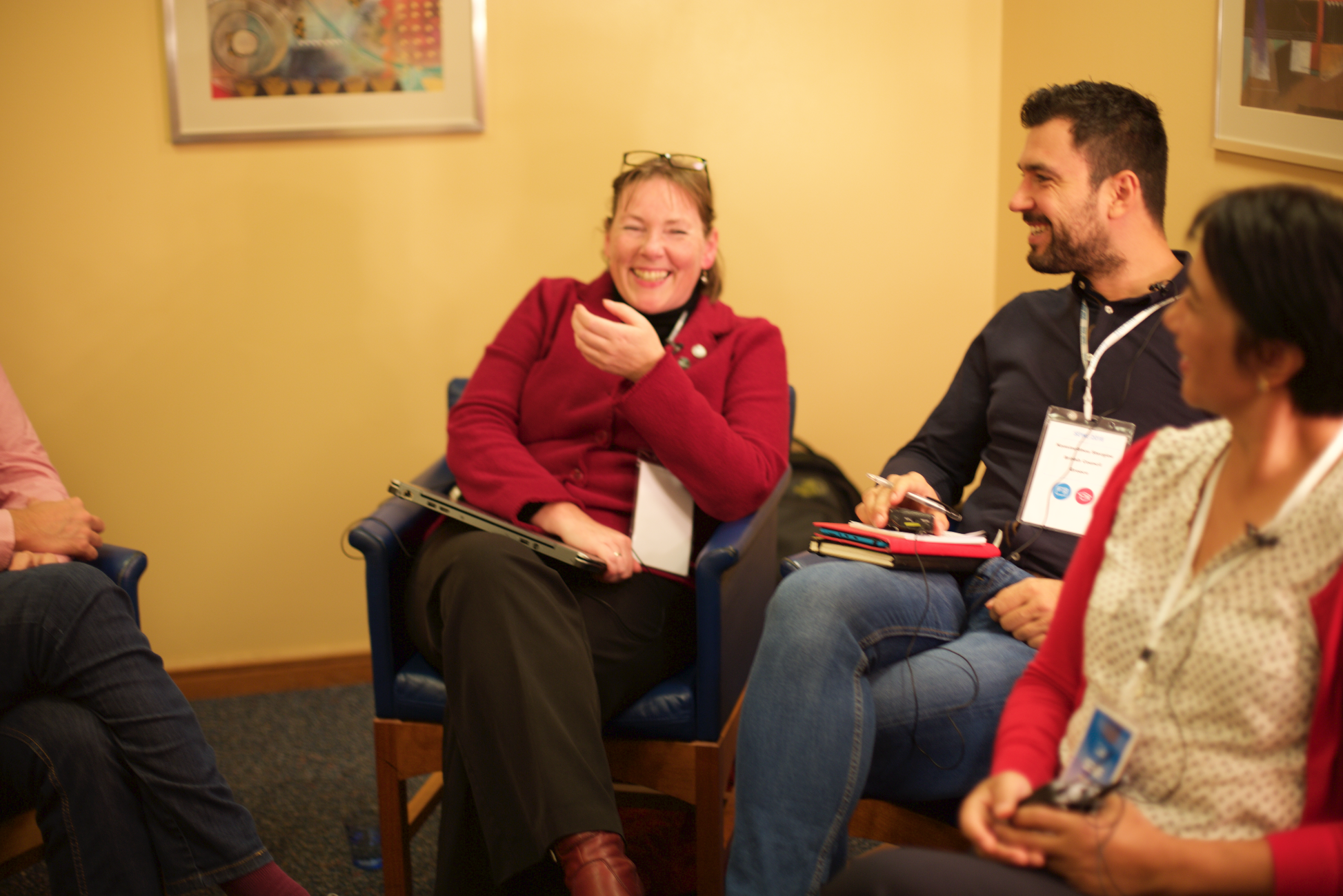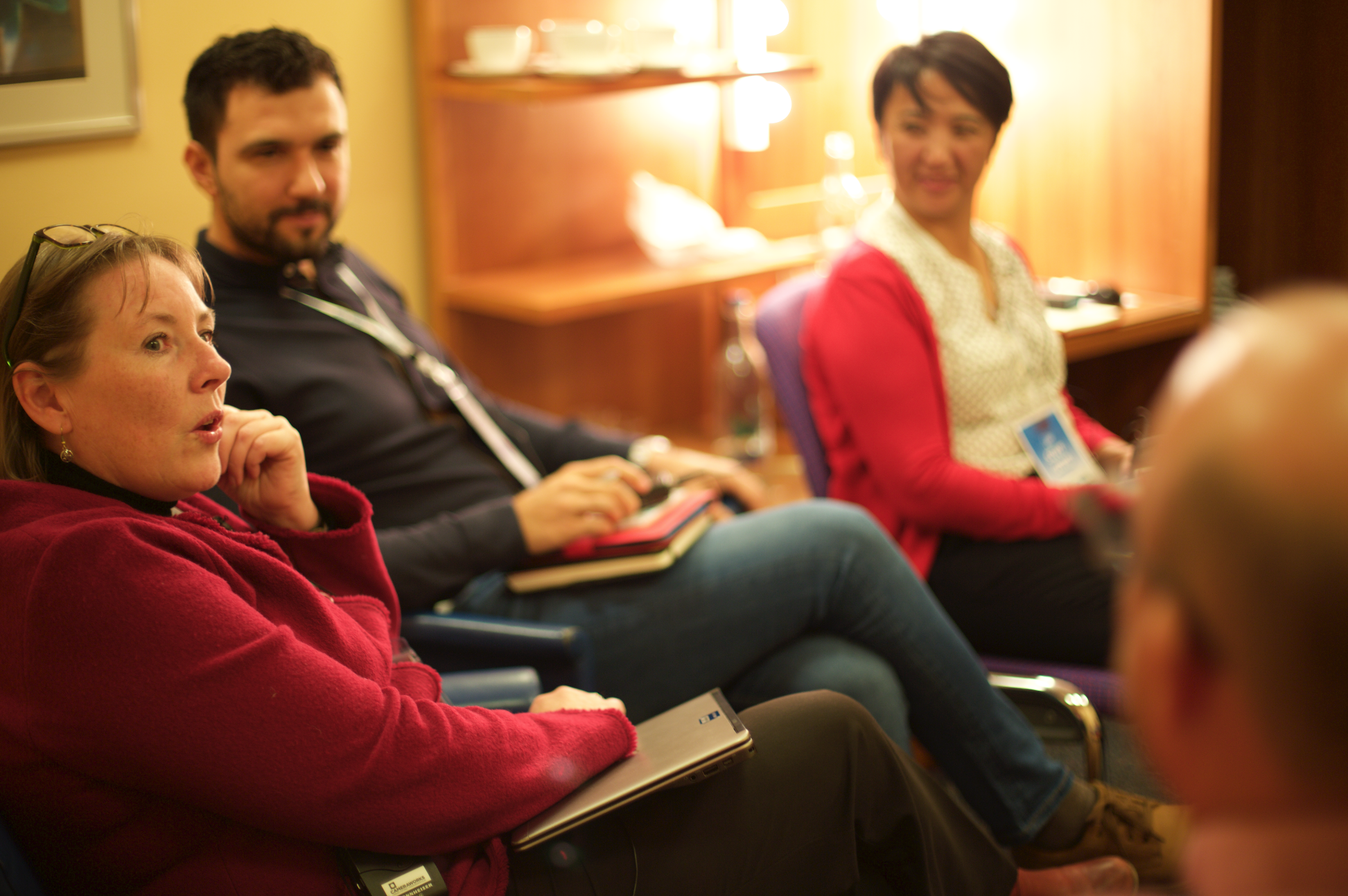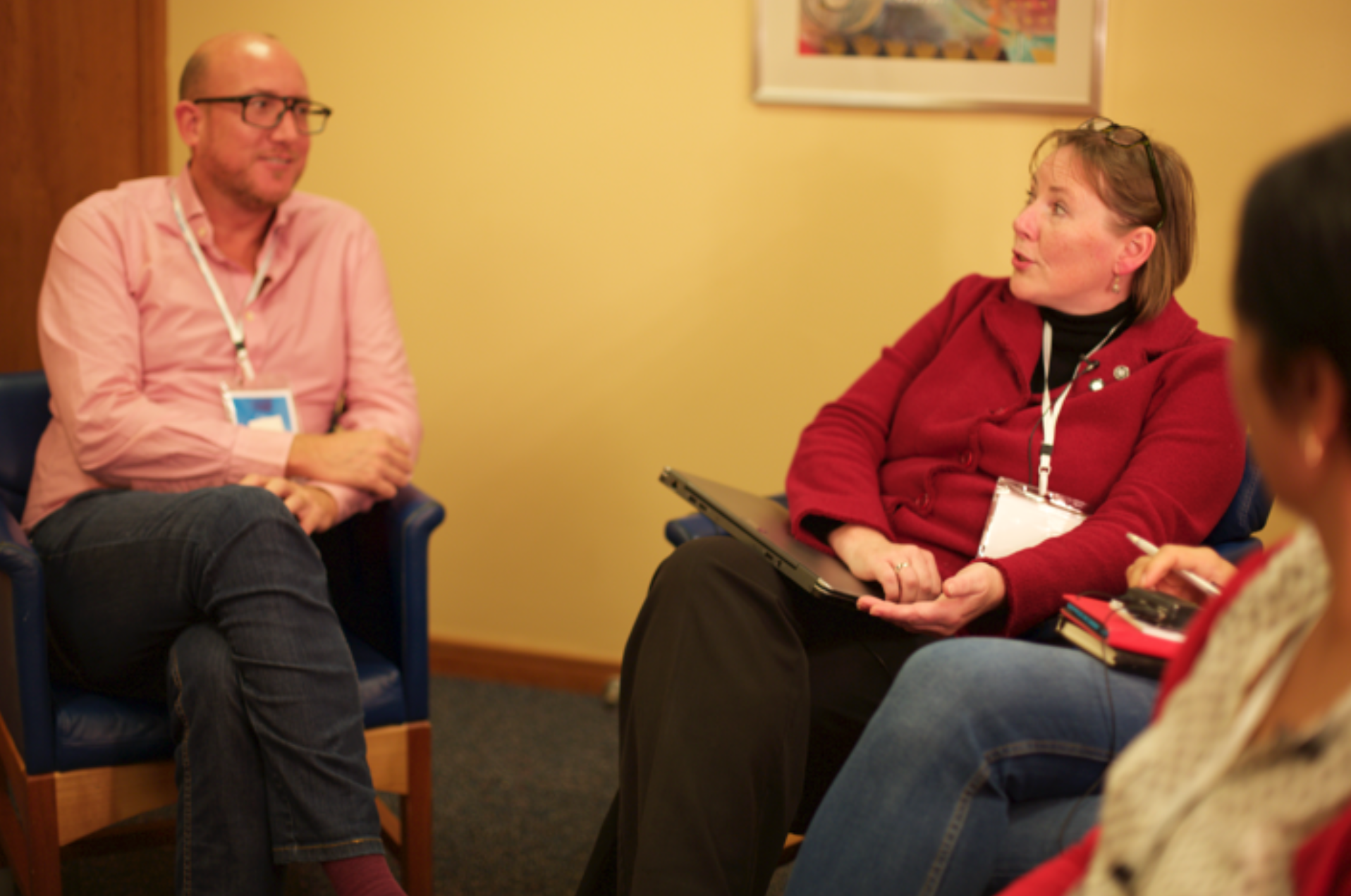Podcast: Maths, science, literature… social enterprise?
"I can’t believe that this student, who is usually unwilling to participate, was the one that created this amazing idea." Can teaching social enterprise as a school subject spark inspiration in students? Experts from around the world discuss in our latest Global Perpectives podcast.
For this episode of the Pioneers Post Global Perspectives podcast, we met education experts from across the world who are passionate about the benefits of teaching social enterprise as a subject in school.
They came together just before the opening ceremony of the 2018 Social Enterprise World Forum, a global gathering of changemakers and social entrepreneurs in Edinburgh. One day earlier, they had all also attended the SEWF Academic Symposium in Glasgow: a day of discussion focused on the introduction of mission-driven business into school curriculums.
The podcast is hosted by Juliet Cornford, social enterprise advisor at the British Council, and the group are united in their belief that, no matter what continent you are in, teaching social enterprise in schools has multiple benefits for students.
Richard Catherall, who co-authored Social Entrepreneurship in Education, a British Council report that was presented at the symposium, explains that because social enterprises tackle local and wider societal issues, he wants teaching professionals across the world to start introducing them into schools not only as a subject in the curriculum, but a tool to help students address their community's challenges.
"It is a way for classrooms to bring the outside world in," he says, "... and through it young people can be exposed to and not protected from challenges in their communities."
Through social enterprise young people can be exposed to and not protected from challenges in their communities
Also part of the discussion is economist Konstantinos Stergiou, who described the huge success of a programme launched in partnership with the British Council to teach social entrepreneurship to young people in Greece.
Describing the country’s current system of education as “conservative”, he explains how the programme, which encourages children to think up their own business ideas with a social purpose, allows children to be more creative and innovative than in more common subjects in Greek schools.

The British Council's Impact Programme brings social enterprise to students in Kazakhstan
He gives the example of the innovation sparked by a national social business competition run through the programme, in which children from across the country presented business ideas which would help their communities. The winner was a group of young people from a vocational school in Larissa, whose business idea makes use of herbs from the local area and guided tours to increase awareness of environmental protection as well as raising money from locally-produced products.
I can’t believe that this student, who is usually unwilling to participate, was the one that created this amazing idea
He says: “You could see some teachers saying, 'I can’t believe that this student, who is usually unwilling to participate in any activity, was the one that got together with other people to create an amazing idea.'”
“If we manage to establish a close connection with the ministry of education to make it part of their daily reality, it will be a great opportunity for a future generation of successful social innovators.”



Recording the Pioneers Post podcast on social enterprise in schools: Juliet Cornford (centre of top photo), Gulmira Rymbayeva (right of middle photo) , Konstantinos Stergiou (centre of middle photo) and Richard Catherall (left of bottom photo)
Also part of the conversation is Gulmira Rymbayeva, who details the successes of a similar British Council programme that she helps run in her country, Kazakhstan.
She explains that students who had gone through their Impact programme, launched in 2016, have already created seven social enterprises, as well as multiple small businesses.
She was depressed, she didn’t know what to do… but thanks to the project she runs a business supporting other young people with depression
Gulmira describes one particular individual who suffered from depression, and then, after completing the programme, went on to start her own business to help other young people improve their mental health: “She was depressed, she didn’t know what to do… but the project helped her identify what she wanted and now she runs a business supporting other young people with depression.”
Listen to the full discussion above.
Want to discover more on how countries across the globe are teaching social enterprise to children and young people? Head to our growing collection of education pieces here.


